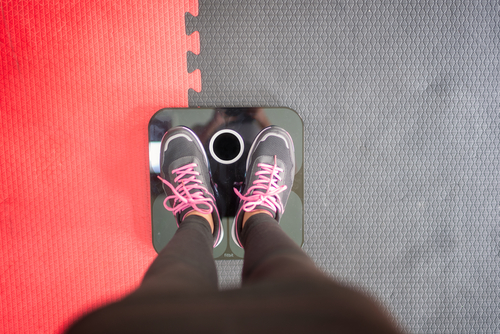There are specific conversations that have become a part of our daily lives. These everyday conversations aren’t limited to small talk about the weather or “how are you” sort of pleasantries. One of the most significant discussions is that of diet and exercise. Because the fact is, as a society, we talk a lot about losing weight.
The debate rages in our society about the best ways to lose weight. You’ve had this conversation with your friends with your family. You’ve heard people talking about it on the bus, in the grocery store, at work. Sometimes we talk about the logistics of losing weight, for instance, proper diets, or how to exercise, etc. People talk about which diet plan is best; keto, paleo, plant-based, vegan, etc. The list goes on and on.
But we rarely talk about the science of what actually happens to your body when you lose weight. How does the fat leave your system? Where does it go? Losing weight is challenging. Understanding the bodies natural functions with weight loss can help people actually achieve it.
Myths Vs. Reality
There are many myths about what happens to fat when it leaves your system. And as with most myths in any field, they are generally somewhat based on reality but are not wholly in and of themselves true. Part of the reason people don’t understand where fat goes is that they don’t understand what fat is.
Where the Fat Actually Goes
The question about what happens to fat as it is lost was a big dilemma for scientists, after numerous studies, it was found that nearly all the fat we lose is exhaled. Some of it is excreted with sweat, but mostly you breathe the fat out.
In some rare occasions, we use stored fat as fuel, that is actually the purpose of fat stores. However, to use fat as fuel, you need to burn off all other energy sources first. Low carb diets such as keto try to trick the body into burning fat first. However, getting into a ketogenic state and staying there is difficult and hard to follow.

Myths About Fat Loss
Here are a few of the most common myths related to how fat leaves your system.
Fat Turns into Muscle
Fat simply does not turn into muscle. They are two separate compounds. While one often shows up when the other leaves, that does not mean that they are one and the same, or that they change into each other.
Fat is Converted into Energy
Now this one is not entirely a fib, as fat is, in fact, the human body’s second most important energy source. However, it is also a little more complicated than fat, simply being converted into energy. While burning fat, the body does, in fact, change usable fat into energy.
This, in turn, causes fat cells to shrink, which then creates heat to help moderate body temperature. While this is happening, oxygen is also being converted into other byproducts of the process. So yes, fat is turned into energy, but no, that’s not really how fat leaves your system.
Fat is Excreted During a Bowel Movement
Again, this one is not entirely true and not entirely a lie. Does some fat leave your body through the colon when you poop? Sure, but it’s only a small percentage of it.
Generally, roughly 84 percent of fat is exhaled as carbon dioxide when you breathe. The rest is excreted as a liquid. Forms of this excretion include urine, sweat, exhalation, and yes, bowel movements.
Is Liposuction an Easier Option?
One of the most common and popular ways to lose weight is through Liposuction. Liposuction, also known as body contouring, is the process of surgically removing fat from unwanted areas such as legs, arms, hips, buttocks, thighs, abdomen, buttocks, neck, and back. Because naturally losing body fat takes a long time and often hard work, many people turn to Liposuction as a quick fix.
However, Liposuction is not a simple weight loss strategy for those who want to lose a lot of weight fast. It is a strategy for those who are already close to their desired weight (usually within 30% of their desired weight) and would like to target a specific part of their body that other methods have failed to target.

See What Happens to Your Body Before and After Liposuction
Practices like Nazarian Plastic Surgery have many photos showing the examples of liposuction surgery, what it can do for your body, and the possible areas of focus. The process of surgery is relatively simple and most side effects, which can include bruising, changes in skin color and sensitivity, and mild scarring, are gone relatively quickly.
Who is a Good Candidate for Liposuction?
Liposuction is not a surgery for the obese or chronically overweight, as it is sometimes portrayed in media. It is a surgery designed for those that are already relatively physically fit and close to their desired weight (within about 30%) but would like to work and focus on specific body parts of regions of the body. Liposuction is best for people who:
- Have decent skin elasticity
- Don’t have very much excess skin
- Have solid muscle tone
- Have tried to target their regions of focus through diet and exercise
- Good physical and mental health
- Are not overweight or obese
- A nonsmoker and not a heavy drinker
- Do not have any long term chronic illnesses or health problems
- Do not regularly take any medications that increase the risk of bleeding
Of course, the first step to deciding if you are a good candidate for liposuction is consulting with your personal physician and a surgeon. You should discuss and seriously consider your goals, costs, benefits, side effects, and any other questions you might have.
Conclusion
While losing weight has become a mainstay of our daily conversations, it is often something that people do not fully understand. They do not understand the process of losing weight, the options for losing weight, or the health risks of losing weight in the wrong way.
There is a lot of benefit in coming to a better understanding of what fat is, how it works, and where it goes when it leaves our system. It’s much easier to attack something when it is fully understood on a molecular level, and much harder to deal with when it is simply understood as a vague idea or concept.









